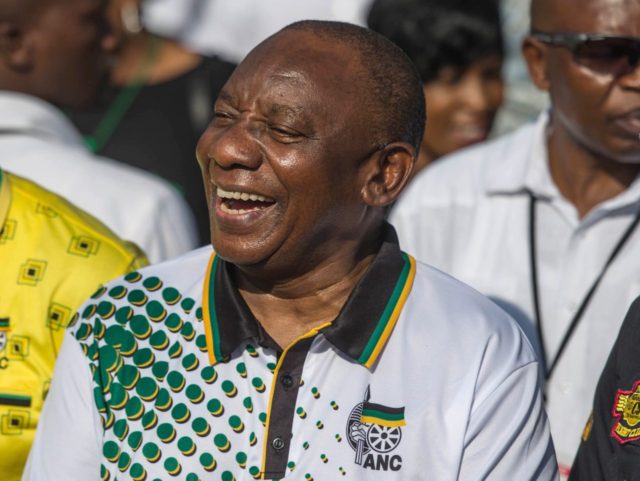South Africa’s ruling party, the African National Congress (ANC), elected a new president on Monday. Deputy President Cyril Ramaphosa takes over the party reins from President Jacob Zuma, meaning that Zuma’s days in office are numbered. He may not last until the country’s 2019 elections.
Many South Africans are thrilled, hoping Ramaphosa can end the corruption Zuma had brought to office after riding a populist wave to power a decade ago.
But why should Americans care? There are three reasons.
The first is economic. South Africa is still the industrial leader in Africa, but it has been suffering economic stagnation in recent years, thanks largely to mismanagement, overspending, and corruption. Ramaphosa, a union organizer-turned-businessman, could change that — and what helps South Africa will help emerging markets in general, boosting a global recovery that will sustain U.S. growth.
The second reason Americans should care has to do with foreign policy. The strength of American leadership is often reflected in the degree to which other nations embrace our own democratic principles.
Under Zuma and his predecessor, Thabo Mbeki, South Africa had been moving in an illiberal direction, building ties to China and Russia. Ramaphosa represents a move back towards the democratic principles of the 1994 transition from apartheid.
That is not to say Ramaphosa is guaranteed to reform South Africa. The ruling party is still largely a patronage machine, and Ramaphosa is surrounded by leaders from the opposing, Zuma-backed faction, including the new deputy president of the party, David Mabuza.
Many of South Africa’s bad policies are also “baked in,” thanks to socioeconomic rights that commit the government to statism and make free market policies much more difficult.
But Ramaphosa’s rise is a sign that people around the world, given a choice, prefer to emulate American principles rather than the autocratic model that China and Russia represent.
Moreover, while South Africa’s political elite is decidedly anti-Trump — relying for international news on CNN and the BBC — the country has essentially emulated Trump’s example by choosing a billionaire businessman to shake up the system and drain the proverbial swamp.
The third reason Americans should be interested in the ANC’s new leadership has to do with opposition politics. The leading South African opposition party, the Democratic Alliance (DA) — for which I used to work — reacted dismissively to Ramaphosa’s win: “The election of Cyril Ramaphosa as ANC President is too little too late for the ANC … The ANC is dead and cannot self-correct, no matter who is at the helm,” DA leader Mmusi Maimane said.
That may be true, but it was also ungracious — and uncreative.
It is easier to run an opposition party when the ruling party is awful. While it would have been worse for South Africa if Ramaphosa had lost to Zuma’s chosen successor, his ex-wife Nkosazana Dlamini-Zuma, it would probably have boosted the DA’s political fortunes. It is tougher to articulate the reasons to vote against the ruling party when it does something right, as it has done with Ramaphosa.
The challenge, in that circumstance, is to articulate what the opposition stands for, rather than just what it stands against. The DA has faced that challenge twice before — once when Nelson Mandela presided over a newly-free nation, and again when Mbeki was re-elected by a massive margin in 2004 on the back of a growing economy. On both occasions, the DA renewed its commitment to its core liberal (small “l”) principle of individual freedom.
That, in turn, allowed the DA to criticize the ANC on specific failures, rather than just resisting the fact that is was governing at all.
The DA could do that again — and the Democratic Party in the U.S. could also learn from that. Doug Jones won in Alabama on issues, not “resistance.” Democrats should acknowledge President Donald Trump’s achievements while arguing for their own ideas.
Our politics — like South Africa’s — would be healthier for it.
Joel B. Pollak is Senior Editor-at-Large at Breitbart News. He was named one of the “most influential” people in news media in 2016. He is the co-author of How Trump Won: The Inside Story of a Revolution, is available from Regnery. Follow him on Twitter at @joelpollak.

COMMENTS
Please let us know if you're having issues with commenting.